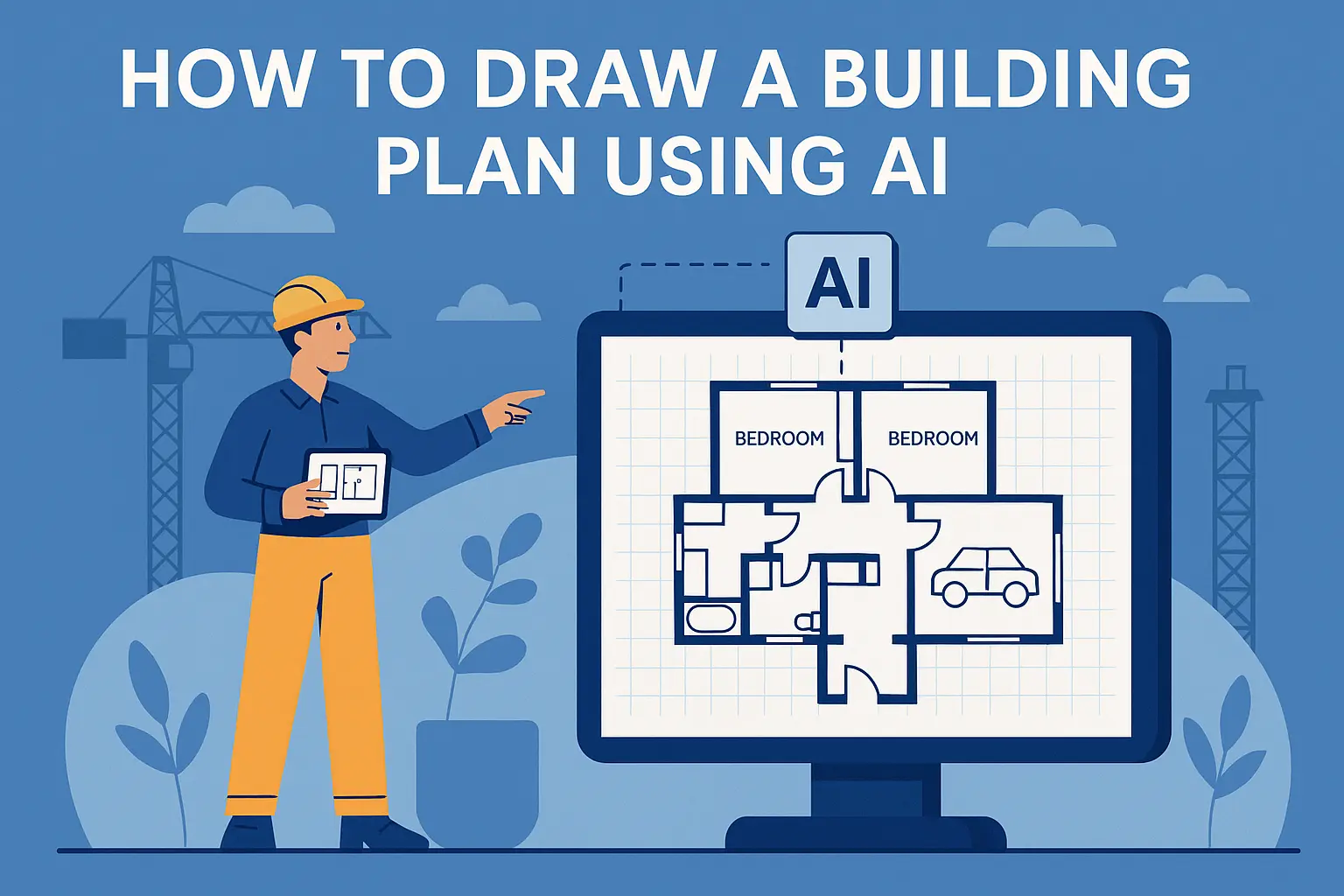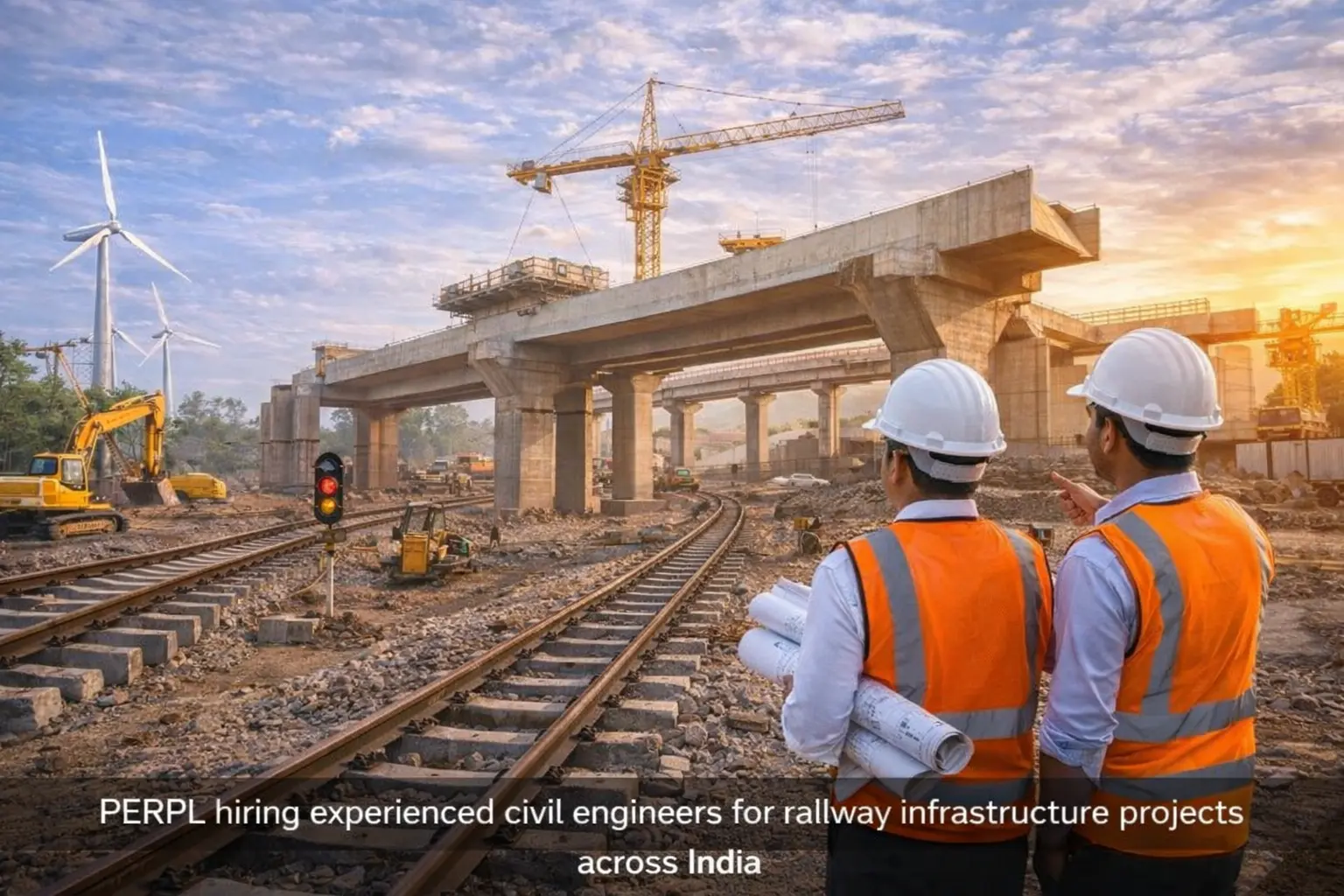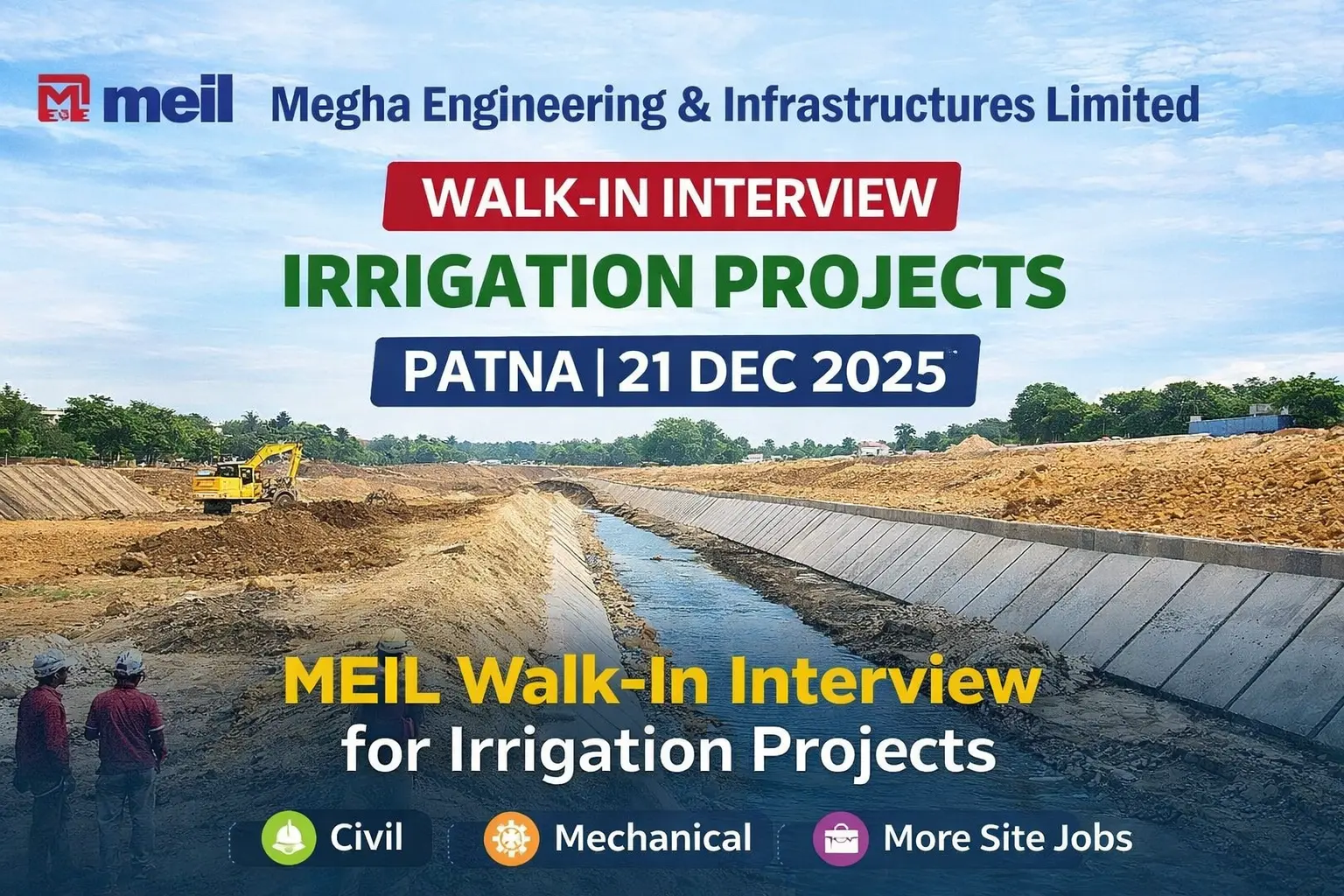Modern construction projects rely on civil engineers for their core backbone of creativity, technical expertise, and working out functional solutions. They come to the office and they make sure that architectural designs are brought to safe, durable, efficient structures while also tackling environmental and economic challenges. They have contributed in planning and designing, as well as in project management and sustainability.
Let’s go through this blog to learn about civil engineers, their roles, responsibilities, importance in the Indian construction industry, necessary skills, upcoming trends, and challenges faced by them.
What is Civil Engineering?
Civil engineering is an old, but essentially important branch of engineering concerned with designing, constructing, and maintaining infrastructure. The structures include buildings, bridges, roads, dams, airports, and water supply structures. Civil engineers synthesize advanced technology, scientific concepts, and practical experience to create new technologies to address infrastructure requirements for society.
Roles and Responsibilities of Civil Engineers in Construction Projects
Civil engineers are responsible for many critical tasks in projects. Here’s a detailed breakdown:
1. Planning and Design
- The Civil engineers plan and strategies for construction works specified in details and designs.
- With software like AutoCAD, STAAD Pro, and Revit they create blueprints and 3D models.
- The primary goal of their design is to show them are the designs structurally sound, cost-effective, and in compliance with regulations.
2. Site Investigation
- When a building is planned, civil engineers will take careful site surveys and investigate soil conditions.
- Site morphology and the topography at the site are assessed using tools such as GIS mapping and theodolites.
- This is a step that makes the project feasible and determines possible obstacles.
3. Material Selection
- Based on the quality and cost of the project, materials for Civil engineers are selected.
- They see to it that the building materials have the corresponding requirements for safety as well as for the durability of the structure.
4. Project Management
- It is a key responsibility to manage construction projects from start to finish.
- Resource allocation, scheduling, budgeting, and risk management are tasks.
- Projects are completed on time, within budget, and according to specification.
5. Structural Analysis
- Civil engineers place a huge importance on structural integrity.
- They have a look at what makes that structure stand up to earthquakes, wind, and heavy loads.
6. Quality Assurance
- Monitoring the construction process to make sure it remains as good as they wants it to be.
- Safe, durable, and a high-quality final product.
7. Sustainability Environmental Considerations
- Offering eco-friendly designs and materials to reduce environmental performance.
- Support green building and energy-efficient design.
Importance of Civil Engineers in Indian Construction
India is undergoing the fastest urbanization and an unheard boom in infrastructure development. This transformation, however, depends largely on civil engineers. Here’s why they are essential:
1. Supporting Urbanization
India’s population is growing and requires modern infrastructure.
Planning and executing urban development projects are the responsibility of civil engineers.
2. Developing Smart Cities
Civil engineers are building infrastructure that combines technology with living in smart cities.
3. Ensuring Disaster Resilience
Civil engineers, for whom India is so vulnerable to natural disasters like earthquakes and floods speak about disaster-resilient structures.
4. Promoting Sustainability
Sustainable construction practices are being taken up by civil engineers to cut the carbon footprint of infrastructure projects.
5. Enabling Infrastructure Growth
Civil engineers carefully use their expertise in projects like highways, railways, railroads, airports, and dams.
Essential Skills for Civil Engineers
To thrive in the competitive construction industry, civil engineers need a combination of technical and interpersonal skills:
1. Technical Proficiency
Structural analysis, geotechnical engineering, and construction techniques expertise.
Working with BIM software, Auto CAD, and project management tools.
2. Problem-Solving Skills
Ability to foresee the construction challenges and be able to work out the practical solutions during the actual construction.
3. Communication Skills
It is of capital importance to be able to effectively communicate with architects, contractors, and clients that work with me.
4. Learning and Team Management
On the other hand, civil engineers are frequently the leader of a large team and must coordinate many stakeholders.
5. Adaptability
How to keep up to date with construction trends and technologies evolving.
Emerging Trends in Civil Engineering
Civil engineering is always changing. Here are the latest trends shaping the industry:
1. Building Information Modelling (BIM)
- All of the project data is integrated into BIM into a single platform so that better planning and collaboration are achieved.
2. Sustainable Construction
- Renewable materials, and designs with energy efficiency and environmental responsibility as their main thrust.
3. Smart Materials
- By improving the durability of structures, they include innovations such as self-healing concrete and smart sensors.
4. AI and Robotics
- Project planning is aided by artificial intelligence, and robots do repetitive construction work.
5. Modular Construction
- Speed up construction with quality using prefabricated components.
Challenges Faced by Civil Engineers in India
While civil engineers play a critical role, they also face significant challenges:
1. Skilled Labor Shortage
Without trained workers projects can be delayed and quality suffers.
2. Budget Constraints
The scope and quality of work are reduced due to many projects presenting financial limitations.
3. Regulatory Hurdles
The bureaucratically approved path can be a slowdown.
4. Environmental Regulations
It is a challenge to harmonize growing infrastructure with environmental sustainability.
5. Technological Gaps
The adoption of advanced construction technologies might be more difficult for smaller firms than for their larger counterparts.
Conclusion
There are civil engineers of all kinds who are the unsung heroes of modern construction projects. Combining innovation with precision, and skills of management produces the infrastructure around which we live and work. Offered applied research to aid development in developing countries, especially India, where they did a tremendous job of leading Mark Romer and me to reflect upon their crucial contributions.
Civil engineers are changing the face of the construction industry through their commitment to adopting sustainable practices and designing disaster-resilient structures. With time, their adaptability and technological expertise will allow them to stay on top of things as technology moves forward.
By taking up civil engineering, you are opening up options to make a big difference in society and if you are looking forward to hard work for something meaningful, it is one of the best career paths.
Read More: How to Prepare for a Civil Engineering Job Interview | Essential Tips for Success
FAQs Civil Engineer in Construction Projects
1. What does a civil engineer do on a construction project?
Civil engineers plan, design, prepare supervision, and control the construction of projects for safety, economy, and sustainability.
2. How important are civil engineers in India’s construction industry?
Yet, they are essential for urban development, infrastructure growth, and for designing disaster-resistant and sustainable structures.
3. What do civil engineers use?
With AutoCAD, Revit, BIM software, and Project Management software like Primavera and MS Project, they use tools.
4. What are the challenges faced by civil engineers in India?
Skilled labor shortage, budgetary constraints, regulatory obstacles, and environmental constraints are the challenges.
5. What are the necessary skills to be a civil engineer?
You need technical expertise, problem-solving, leadership, communication, and adaptability.










